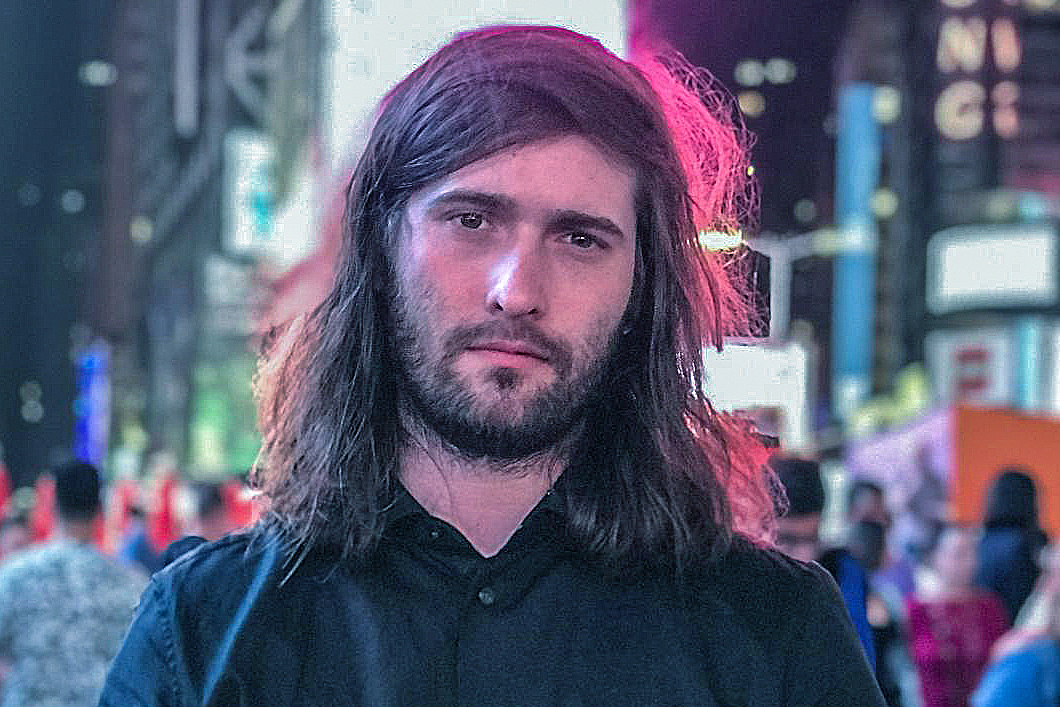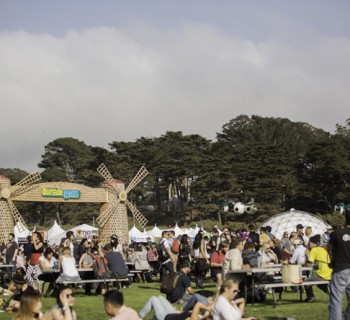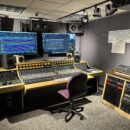If all had gone according to plan, the Black Keys would be on the road right now, continuing to promote 2019’s aptly titled Let’s Rock with shows at home and across the pond. But thanks to the novel Coronavirus pandemic, Dan Auerbach and Patrick Carney are instead back home in Nashville waiting for a green light to play again.
It is an unexpected pause in the Ohio-bred duo’s comeback campaign; Let’s Rock (which debuted at No. 4 on the Billboard 200 albums chart and spawned the No. 1 Alternative Rock chart hit “Lo/Hi”) is the Black Keys’ first album in five years, ending the longest break of an 18-year recording career dotted with multi-platinum triumphs and five Grammy Awards.
Auerbach and Carney were hardly idle, however––quite the opposite. Auerbach won the Grammy for Producer of the Year, Non-Classical, in 2013, and was nominated again this year. His Easy Eye Sound studio and record label have been going non-stop, and he’s helmed releases by Lana Del Rey, Dr. John, Ray LaMontagne, Cage the Elephant, Marcus King, John Anderson, Yola and many more.
Carney, meanwhile, opened Audio Eagle Studio and got behind the board for Michelle Branch [who he married in 2019], Tennis, the Sheepdogs, the Black Lips, Jessy Wilson and more, as well as writing the theme song for TV’s Bojack Horseman and other music for its soundtrack.
They found it easy to open the Black Keys again, however––even taking the production reins themselves after making four previous albums with Danger Mouse. And you can be sure, with some time on their hands now, they have more music cooking––including an expanded 10th anniversary edition of the Black Keys’ first platinum effort, Brothers.
Music Connection: So what have things been like in your corner of the quarantine?
Dan Auerbach: You know...the same. Kind of hunkered down, working a bunch in the studio, hanging out. It’s allowed me to finish up a bunch of projects that needed some time to be worked on that I just didn’t have with all the other things that were going on. So, yeah, I got to catch up with some projects, which feels really good.
Patrick Carney: I’ve been producing a record for Michelle, slowly, in my studio, just a couple hours a day, maybe. I’ve been working a lot and I’ve been watching a lot of weird shit on YouTube, since there’s no sports on, and getting to hang out with my kids. I’ve had a few weeks that were really productive and a few weeks where I couldn’t get it together to do anything––which is kind of how I am, anyway. I wait to feel inspired, I guess.
MC: It’s been great to have you guys back as the Black Keys. What led you to take a hiatus?
Carney: We had kind of just burned out by 2014, definitely by 2015. I’d broken my shoulder in early 2015 and we had to cancel a bunch of dates. When we came back to finish a few dates we decided to not book any more shows and give ourselves some time off. Dan was going to go on tour with his band The Arcs, which led to him doing a solo tour and led to me doing a tour with Michelle. One thing just kind of followed the other. That break we took, I think it saved our relationship, really. It proved to both of us that it’s okay to slow things down. It’s not a prison sentence; when we’re excited about doing it we can do it, and if we need a break we can take a break.
MC: Could anything have kept the band going without interruption?
Carney: If I could go back and change one thing, I would’ve taken 2013 off. Before that it had always been “plow ahead” for us. We reached some sort of threshold and milestone, and then we’d get to the next level and then the next one. It culminated in 2012 with us doing our first arena tour––and that was arenas and festivals worldwide, not just the U.S.
Then 2013 started off with Dan going through a divorce and us trying to make a record and then going back out and touring all of 2015. I think we realized there’s a lot to be said for taking care of things at home and it can’t just all be work, work, work. So we took those couple years off to reset, and it ended up with me figuring out my own personal life, getting divorced a second time, meeting Michelle and starting a family. That seems to be what happens when we take time off.
MC: So how did the group come back together?
Auerbach: I was making a record with [the late James Gang co-founder] Glenn Schwartz. He was my guitar hero growing up in Akron, and man, I just borrowed so much from him when I was starting, especially when I was starting the Black Keys. A couple of years ago I invited him to Nashville to record, and it was amazing. It got me excited about the idea of making a Black Keys record, so as soon as I finished that Glenn Schwartz record I got in touch with Pat and we put it in the books. We didn’t even talk about it; I said, “Hey, let’s record some stuff” and he said, “Cool,” and that was about it.
Carney: Around the end of 2017 my uncle passed away. Then we found out Michelle and I were having a baby. I guess through all that Dan and I reconnected quite a bit and started talking and decided to make another record. So we went in the studio and made this record.
MC: What’s different about being the Black Keys now?
Carney: I think part of the process of making the record was figuring out how we burned out last time, what caused us to burn out. And a lot of that came down to the touring. This time we agreed not to do too much. Initially we agreed to 30 shows [in 2019] and I think that’s the right way to step back into touring. I can’t imagine if we were still out there for, like, eight months straight again. At this point we’re really excited about doing it and doing it smartly.
MC: What kind of perspective about the band did you get from the time off?
Carney: I always appreciate what Dan and I have. I do get reminded of it, what it’s like to be in a band with just one other person who’s equally as driven and on the same page and willing to do the work in spite of whatever bullshit is happening. I think when you have a partner like that, you can kind of do anything you want; It doesn’t mean it’s gonna be successful, but you’re gonna be accomplishing something with your friend and it’s gonna be meaningful. Just taking stock of the things Dan and I have managed to accomplish is pretty fucking crazy.
MC: Was being the Black Keys again like riding the proverbial bike?
Auerbach: We just had this wild flurry of writing songs, just bashing them out––like, recording two, three songs a day, making them up from scratch, doing that a couple weeks at a time. It was like we didn’t miss a beat.
Carney: It was easy. It’s always easy for us to make something we’re happy with––has been since the first time we played. I found some recordings recently of us in the late ‘90s, just fucking around, and I made a little archive of all the shit I had and sent it to Dan and he’s like, “Oh shit, this is crazy!” He’d forgotten some of this stuff existed. That was pretty inspiring. And the very first idea [“Breaking Down”] made the Let’s Rock record. I think that pretty much sums it up.
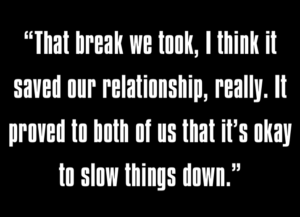
MC: You produced Let’s Rock yourselves after a four-album run with Danger Mouse. How come?
Auerbach: It just felt like the right thing to do. We hadn’t made a record in so long, it just seemed like it should be just the two of us. We didn’t have any meetings beforehand. We didn’t do any pre-production. I sat down with the guitar, Pat sat down at the drums and we just kind of did our things. It didn’t even occur to us to talk about working with someone else, especially on this record.
MC: Anything surprise you in making this particular album?
Auerbach: The only song on the record that has any sort of synthetic sound is “Walk Across the Water,” just a little. There’s a little drum machine Pat brought in called the Auto Orchestra. It gives you a little drone note that goes along and a foot controller that controls the major and minor of that note. I just played bass along with this drum machine and controlled the major/minor with my feet and Pat was annihilating the drums and we just made up [the song] almost instantly. So that was one that we didn’t expect. It just came along.
MC: Could the two of you feel the kind of pent-up appetite for the Black Keys during its absence?
Auerbach: Yeah, it was awesome. It felt really good. It made us even more excited about doing it again and going out and playing the shows.
MC: You expanded the band in a different way for the Let’s Rock Tour. It’s the first time you’ve had more than one guitarist on stage, in fact. What’s that been like?
Auerbach: Every time we’ve had other musicians before it was mostly for keyboard and bass, and on this tour there’s absolutely no keyboard on stage. It’s pretty wild hearing the songs with the triple guitars, because since the very beginning I’ve always doubled and tripled the guitar parts, but I’ve never heard that sound on stage before. So it’s really interesting. It’s a lot of fun, and really different for us.
Carney: It makes it easier to play “Free Bird.” (chuckles) Dan describes it as we basically have our own Crazy Horse now. It feels great. The old stuff, we used to triple Dan’s guitars anyway, so it kind of sounds more like us than when it was just the two of us, or the two of us with a couple other guys. A lot of those records were basically the same set-up as what we’re touring with now. So it’s exciting, and everybody gets along really well.
MC: You’re both very busy producing and writing for and playing with others. What kind of reward do the two of you get from that work?
Auerbach: I feel like I’ve gone to graduate school these last few years, getting to make records with all these crazy, incredible musicians. I learned so much; so, yeah, there are all kinds of things that are different about me this year than there were four, five years ago––and with Pat, too.
Carney: Obviously, Dan and I both love making music and love recording bands and producing bands. No matter what, we’ll always be doing that. I really don’t know if I’ve ever made a penny off it, but I always learn a lot.
I tend to gravitate towards these David vs. Goliath projects; I always naturally side with an underdog––even with Michelle. When I agreed to help Michelle make the record [Hopeless Romantic in 2017] it was because I really liked Michelle and wanted to get to know her, but also her struggle with trying to be heard, with being dropped by a record label which she had sold millions of records for. That really drew me in and made me want to help her.
So, yeah, it’s not just making music. It’s also to offer a little perspective to artists and maybe remind artists that just because they’re not getting the support they should, they should still persevere through it.
Auerbach: My first love was playing music with my family, and my second love was making records. The first time I saw a four-track recorded was when Carney showed one to me, and ever since then I have been so in love with making records. It’s just a really big part of who I am. I probably spend more time making records than anything else I do.
MC: What are your respective studios like?
Carney: I built the studio I have now about eight years ago. It’s centered around an old API 1604 desk that I bought off Evergreen State College in Olympia, Washington, that they used to teach recording on. So all the great Olympia, Seattle, Portland punk bands have done recordings on this desk. I made a record with Calvin Johnson from K Records and Beat Happening and he was looking at the desk, remembering the times different bands he was in had done stuff with it.
I have a few other things that are really kind of special that I always wanted. I have a plate reverb from Chung King studio in New York. I have a Mini Moog Model D that I have a hunch is connected to Devo; there’s a plaque on there that says “Especially for Mark,” which may be Mothersbaugh, which would be very cool. I have every one of my uncle’s main saxophones I purchased from his estate. There’s a lot of cool synthesizers. Lately, I’m into guitars.
Auerbach: The whole studio is centered around a Spectrasonics console, very rare. They had Spectrasonics at Stax, Ardent, all kinds of amazing studios. We have a beautiful one, and that’s the heart of our studio. From there, I’ve collected instruments for 30-something years, other gear. I’ve tried to whittle it down to things that work well. If it’s broken it’s asked to leave. I hate wasting time. We’ve rented studios that send you their gear list, and when we got there half the stuff was broken. I hated that so much, so that started me off making sure everything I have is working. It’s mandatory, because it helps the flow.
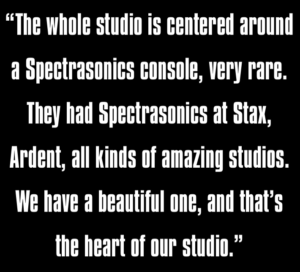
Carney: Between Dan and I we have every single thing you can imagine––it’s ridiculous––’cause we’re both obsessed with this shit. He has more stuff than I do, but I almost intentionally get the stuff he doesn’t have, so we have it covered––like, I have a [Neumann] U47, he has a U67. Between us, we have everything.
MC: You’ve both had success of varying degrees. Do you go in hoping for that, or does the success of the Black Keys give you a kind of freedom to be a little more pure in your intent?
Auerbach: I’ve never really thought about it like that. Different records have different aspirations, but there are very few records where I’m even thinking about radio, let alone winning awards.
Carney: I’ve worked on records I know are great but I can’t get even Warner Bros., OUR label, to listen to it, let alone respond to whether they’ve received it. That’s a reminder of how necessary it is for people like Dan and I, who have managed to be successful in this industry, to actually go to bat for music that we really believe in.
MC: Dan, you made some noise with Yola’s Walk Through Fire, to the tune of four Grammy nominations, plus your own Producer of the Year nod. Satisfying?
Auerbach: Oh my God, I’m so excited for her. To be nominated in four different categories was so huge. She’s tearing it up on the road, converting people every single night when she’s out on stage. It’s just great to find a talent like that, let alone get to work with one on a level like that. So, yeah, I’m really extra excited for her, and we’ve recorded some fun new songs she’s gonna release––but I can’t spill the beans about that yet.
MC: Patrick’s big 2019 project was with Jessy Wilson. What brought you to her?
Carney: Jessy’s a very talented singer––she’s a star, in my opinion. She and her former bandmate asked me to work on a Muddy Magnolias record. I took a meeting with them and basically told them I wasn’t a big fan of the band. I offered them a little guidance or something, at which point they told me one of the singers was leaving the band. The whole thing was very confusing, so I ended up talking with Jessy and told her if she was interested to come to my studio to work on a song. She did and it went really well, and then we booked some time and made this record, without a label. It soon became apparent that she was in that type of situation in her career where no one was willing to take a gamble on her, but we made a great record and worked it and put it out there.
 MC: One thing you’ve done on the road is have the acts you’ve both produced open for the Black Keys. Might as well use all available resources, eh?
MC: One thing you’ve done on the road is have the acts you’ve both produced open for the Black Keys. Might as well use all available resources, eh?
Carney: Dan and I divided the tour in half and brought our artists out, which is what you do when you believe in something. An artist like Jessy, she needs to be in front of people for them to understand who she is and how she feels and that talent she has. We believe in these [artists], so we’re happy to put them out there.
MC: Dan, you mentioned working with your guitar hero Glenn Schwartz before. How was that?
Auerbach: Oh, man, it was so awesome. It was so good to see him. I had Glenn’s guitar there, and as soon as he walked in the door he said, “There it is!” I just gave it to him and he just started combing over every little inch of it, looking at it, talking about it. Then I got to play a song, and it was just so much fun, really cool. He was the inspiration for the Black Keys’ record, the reason we ultimately went on tour. And then when we had Joe Walsh play with us in LA, it felt like it all came full circle.
MC: You’re also working on an anniversary edition of Brothers, which was a real breakthrough for the band. What’s going to be on it?
Auerbach: We’re just in the middle of doing the artwork and packaging. There’s going to be some extra stuff, some new photos and things. There’ll be a vinyl component to it. I can’t really say all the stuff, because we haven’t totally agreed on it yet, but it’ll be very cool.
Carney: My brother’s doing the artwork for it, which is cool. It’s the first time we’ve done an actual anniversary edition. When we had the 10th anniversary of The Big Come Up, that was right in the middle of the El Camino tour, and I think it maybe wasn’t beneficial for us to highlight the fact we’d been a band for 10 years already at that point. At this point, it’s a badge of honor, so [Brothers] is the beginning of a bunch of things like that we’ll have coming down the pipeline.
MC: Do we feel like the Black Keys are back for good again, or should we expect another kind of break from you guys?
Auerbach: I’m not sure. I really don’t know. Only time will tell. Nothing’s for sure in this life––we find that out every day. But I’m definitely excited for the shows... and for having new music out. It feels good.
Carney: In our almost 20-year career we’ve taken one break, y’know? I imagine the next time we make a record it will not be a five-year gap. I think it will be much sooner than that. As far as the extent of the touring we’re gonna do, we’re trying to figure that out. I don’t think there will ever be anything as extensive as we used to do.
Auerbach: We might already have [another album] done.
MC: Really?
Auerbach: No––but we could. (laughs) That’s what I’m saying. You just never know.

